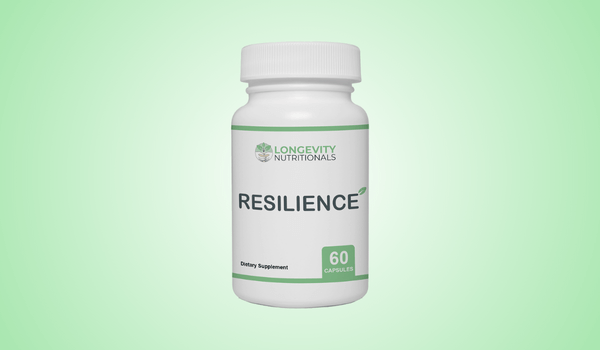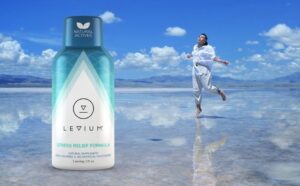Look, I’ve seen enough mushroom supplements flood my social media feed to last a lifetime. The ads are everywhere, promising mental clarity, immune support, endless energy, all wrapped up in some “ancient wisdom meets modern science” package. Resilience Mushroom Complex is the latest player making these exact promises. So naturally, I had to dig into what’s actually going on here, because if there’s one thing I’ve learned after wasting money on overhyped supplements, it’s that marketing videos and glossy websites rarely tell the whole story.
What They’re Selling You
The pitch sounds almost too good to dismiss completely. Resilience Mushroom Complex claims to deliver “cognitive enhancement,” “immune system fortification,” and “stress reduction” through a blend of functional mushrooms. They’re talking about Lion’s Mane for your brain, Reishi for calm, Cordyceps for energy, and a few others thrown into the mix.
The website uses phrases like “clinically studied ingredients” and “scientifically formulated blend.” They want you to believe this is basically a cure-all in capsule form: sharper focus at work, better sleep at night, fewer sick days, and the stress-melting powers of a week-long vacation. Without actually taking a vacation or changing anything else about your chaotic life.
And here’s where my scepticism kicks in immediately. When a supplement promises to fix everything from brain fog to your immune system to your energy levels all at once, that’s usually code for “we’re hoping you’ll attribute any positive change in your life to our pills.”
What’s Actually Inside
Let’s break down what you’re supposedly getting in each serving:
| Ingredient | Claimed Benefit | The Reality Check |
|---|---|---|
| Lion’s Mane | Cognitive function, memory, focus | Does has some legitimate research showing nerve growth factor support, but studies used much higher doses than most supplements provide |
| Reishi | Stress relief, immune support | Traditional use is solid, modern research is mixed—might help with immune markers, but “stress relief” is pretty subjective |
| Cordyceps | Energy, athletic performance | Some evidence for oxygen utilisation, but you’re not getting the wild Himalayan version (that costs thousands) |
| Chaga | Antioxidant support, immune health | High in antioxidants, sure, but so is a handful of blueberries |
| Turkey Tail | Immune system function | Actually has decent research, particularly for immune support during illness |
Now here’s the frustrating part (and this is where supplement companies love to play games). Resilience Mushroom Complex uses a proprietary blend. That means they list the total blend amount, let’s say 2,000mg, but they don’t tell you how much of each individual mushroom you’re actually getting.
This matters more than you might think. Because the studies showing benefits for Lion’s Mane typically use 500-3000mg of Lion’s Mane alone per day. If this proprietary blend only contains 2,000mg total across five different mushrooms, you might be getting just 100-200mg of Lion’s Mane. Which is basically a homoeopathic dose that makes the label look good but probably won’t do much for your brain.
See what I mean about the proprietary blend being complete nonsense from a transparency standpoint? You can’t verify if you’re getting effective amounts of anything. It’s like ordering a smoothie and being told it contains “a fruit blend” without knowing if that’s mostly expensive berries or mostly cheap apple filler.
The Dosage Problem Nobody Talks About
So they’ve crammed these mushrooms into capsules (which, to be fair, is more convenient than brewing mushroom tea every morning. The recommended dose is two capsules daily.
But here’s my issue. The clinical research on these mushrooms typically involves way higher doses taken over months, not weeks. We’re talking 1,000-3,000mg of a single mushroom extract. If you’re splitting 2,000mg across five mushrooms, the math just doesn’t work out in your favour. Unless they’re using incredibly concentrated extracts (which they don’t specify), you’re probably underdosed on everything.
And another thing, are these actual extracts or just ground mushroom powder? Extracts are concentrated and more bioavailable. Powder is cheaper to produce, but your body absorbs less of the beneficial compounds. The website doesn’t clarify this clearly enough, which makes me suspicious they’re using the cheaper option.
Pricing Reality Check
We’re looking at roughly $69-79 for a single bottle (30-day supply), depending on whether you catch a sale. That’s not cheap.
Here’s the mental math you need to do: You’re paying $70 to maybe get underdosed amounts of mushrooms that might help with focus and immunity if you take them consistently for several months. You could buy individual mushroom extracts from reputable supplement companies with transparent dosing for less money and actually know what you’re getting.
Or and hear me out here, you could spend $20 on bulk dried mushrooms from an Asian market, make your own extracts or teas, and actually control the dosages yourself. More work? Absolutely. But at least you’d know exactly what’s going into your body.
Customer Reviews: The Usual Split
The reviews are predictably all over the place. Some people swear they feel more focused and energised after two weeks (which honestly could be a placebo effect, or they finally started sleeping better, or maybe the mushrooms actually helped, impossible to isolate). Others say they felt absolutely nothing after finishing an entire bottle, which tracks with my dosage concerns.
Real talk: mushroom supplements work differently for everyone, and results, if they happen, take time. Anyone promising you’ll feel different within days is probably selling you on hope rather than realistic expectations.
The Verdict: Should You Buy This?
Here’s my honest take. The mushrooms in Resilience Mushroom Complex aren’t garbage ingredients. Lion’s Mane, Reishi, and Turkey Tail all have legitimate research supporting various benefits. The problem is the proprietary blend nonsense, questionable dosages, and premium pricing for what might be mediocre quality.
If you’ve got money to experiment and you’re genuinely interested in functional mushrooms, this isn’t the worst option out there. But it’s definitely not the best value. You’d probably be better off buying single-ingredient mushroom extracts from companies that actually list their extraction ratios and beta-glucan content (that’s the good stuff you want from mushrooms).
Am I saying don’t buy it? No. I’m saying manage your expectations, don’t believe the hype about miraculous transformations, and maybe start with one bottle before committing to any subscription plan they try to push on you.
Because at the end of the day, no supplement, mushroom-based or otherwise, is going to fix poor sleep, a terrible diet, and chronic stress. They might support your efforts if everything else is dialled in. Might.




Be First to Comment